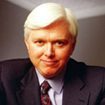
 By Dennis Stearns
By Dennis Stearns
Feb. 23, 2012
What are the most successful private companies doing to plan for 2012? As part of Stearns Financial’s ongoing research and work with private business clients, we recently completed a report, Small Bets and Super Trends, which details how many top entrepreneurs are finding ways to grow despite the uneven economic recovery. The report includes ideas from hundreds of Inc. 500 CEOs who have maintained above-average growth and profitability despite the tough economic conditions.
The CEOs cited six areas of focus that they considered key to their company’s success. The first five were the typical answers (maintain good expense controls, keep and train the best people, look for ways to maintain and expand sales to existing customers) but the sixth was something different. Many of the CEOs said they are “making small bets in new areas to find new customers and markets.”
Entrepreneurs who have mastered the small bet approach understand intentional congruence. This is the classic business concept that anything you do beyond your “core” business should have a high level of congruence or synergy with what you already do well. This often includes experimenting with new products or services or acquiring small “bolt-on” companies that utilize key strengths of the existing company, benefit from similar customers (providing cross-selling opportunities), have a low risk of polluting the core if the “small bet” fails and ideally add areas of strength the core company can use to enhance its existing sales efforts.
Most successful businesses don’t invent anything new out of “whole cloth.” They find ways to take existing products or services and make them better or more useful to someone who has the means and interest to buy them. They experiment with small bets, rather than bet the farm on one big idea and hope it will turn out as planned.
With so much uncertainty around business conditions, regulations and tax rates beyond 2012, small bets are just right for the business owner who wants growth but also wants to avoid big failures on the heels of surviving the Great Recession.
Here are two key small bet themes:
1. Ideas in your own backyard – It turns out that more than 75 percent of innovative ideas come from active users, whose needs precede and often anticipate what the masses will want or need. You probably already know who among your customers, staff or network of advisors and friends are active users. Seek these people out as part of your small bet development team.
The mountain bike wasn’t invented by a person or a company. In the mid-1970s, avid pro-am bike riders in northern California started making modifications to their bikes for off-road riding on local mountains. They replaced thin tires with thick ones, changed the braking systems and modified the bike frame. Bike manufacturers finally took note of the trend in the early 1980s. By 2004, mountain bikes accounted for more than 65 percent of all bikes sold and were a $58 billion industry. Anyone learning from these early adopters would have seen it coming.
2. Foster a growth mindset – Those favoring a growth mindset believe that intelligence and abilities can be grown though efforts, and view setbacks as opportunities for re-creation of a new small bet prototype. They have a desire to constantly challenge and stretch themselves. Those with the growth mindset seek activities that expand their abilities while those with a fixed mindset gravitate toward activities that confirm their abilities. Growth mindsets ask the question, “Can I learn to do it?” while fixed mindsets ask, “Am I going to be good at it right away?”
Fixed mindsets want to appear capable, even if that means not learning in the process. They give up more easily and have greater risk aversion because setbacks threaten their self-image. Interestingly, newly minted business owners who come from other industries where perfection is critical often find it difficult to be great innovators. Why? The answer may be in their mindset.
To nurture the growth mindset, develop an “innovation workshop” and a diversified creative team that can regularly brainstorm ideas that may be used or adapted to your current business plan in the future. Look for opportunities to be with others with a growth mindset, including Vistage CEO groups and Inc. 500 conferences.
Dennis Stearns is president of Stearns Financial Services Group, a 2011 Triad Business Journal Fast 50 award winner. Stearns Financial is a financial planning and investment management firm with offices in Chapel Hill and Greensboro, NC and clients around the U.S. Stearns can be reached at [email protected].








